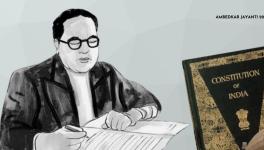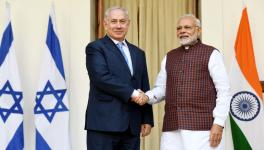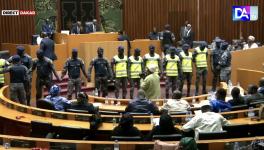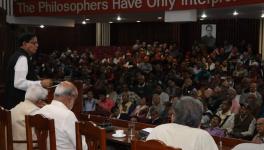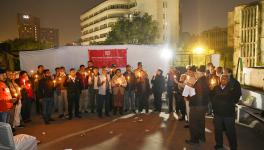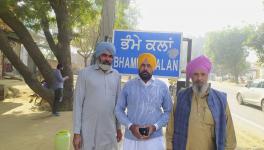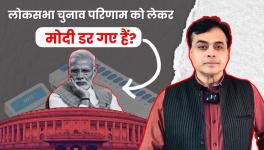“What about Kashmiri Pandits” Will Not Solve Their Crisis
This January marked thirty years of the Kashmiri Pandit exodus from the Kashmir valley. They suffered grave injustice, violence and humiliation prior to the migration from their social and cultural roots in the Kashmir Valley. Their exodus was due to the communalisation of militancy in Kashmir during the 1980s. While no ruling government has applied itself enough to “solve” the uprooting of Pandits from their roots, communal elements have been aggressively using “what about Kashmiri Pandits” every time human right defenders or others raise the plight of the Muslim minority in India. This minority is now facing an overall erosion of their citizenship rights.
Time and time again, in the aftermath of incidents of communal violence in particular, human rights groups have tried to put forward the demands for justice and rehabilitation of the victim minority. Instead of being heard, the Hindu nationalist combine in particular, but even others, shout back as a matter of routine—where were you when Kashmiri Pandits were driven away from the Valley? In a way, the tragedy being heaped on one minority is being justified in the name of the suffering of Pandits and in the process violence is being normalised. It is as if two wrongs are being made into a right, as if the suffering Muslims or those who are trying to defend minority rights are responsible for the pain of Kashmiri Pandits.
During these past three decades, many political formations have come to power, including the BJP, the Congress, the third front and others. To begin with, when the exodus took place Kashmir was under President’s rule and VP Singh’s government was in power at the Center. This government had external support of the BJP at that time. Later, the BJP-led National Democratic Alliance came to power, where it remained for close to six years starting in 1998, with Atal Bihari Vajpayee the prime minister. Then, from 2014 onward, the BJP led by Narendra Modi as PM, came to power with a brute majority for his party. NDA allies are also enjoying some spoils of power, though without any say in the policies being pursued by the government. Modi has absolute power with the Home Minister, Amit Shah occasionally presenting Modi’s viewpoints.
Those who habitually blurt out “what about Kashmiri Pandits” are using it as a mere rhetoric, to disguise their communal colour. The matters in Kashmir are very disturbing and cannot be attributed to Indian Muslims, as is being projected both overtly and subtly. Today, of course, the steps taken by the Modi government, to abrogate Article 370, abolish clause 35A, downgrade the status of Jammu and Kashmir from a state to two Union territories, have created a situation where the return of Kashmiri Pandits may have become more difficult.
As the local atmosphere is more stifling in Kashmir today. Its political leaders with democratic potential have been slapped with the Public Safety Act, which puts them under lock and key for, conceivably, a long time without any accountability to the courts. The internet was suspended, communication was stifled, and an atmosphere still persists of curtailed freedoms. This situation makes finding any solution to Kashmir’s problems even more difficult.
Kashmir has been a vexed issue—it is the suppression of the clause that grants it autonomy that led to a feeling of alienation among its people and propelled the rise of militancy in the region. This unease was supported and exploited by Pakistan. The entry of Al-Qaeda elements into Kashmir, who, having played their role against the Soviet army in the 1980s, communalised the region. The torment of Kashmiri Pandits begins with the entry of hardline elements into Kashmir. Initially, militancy in Kashmir was on the grounds of Kashmiriyat. Kashmiriyat is not Islam but a synthesis of the teachings of Buddha, Vedanta philosophy and Sufi preachings.
Also, the Pandits, who have been an integral part of the Valley, were urged by a goodwill mission shepherded by reputed Kashmiris to stay on. Local Kashmiri Muslims had promised to counter the anti-Pandit atmosphere. Jagmohan, the governor, who later became a minister in the NDA government, instead of providing security to the Pandits thought it fit to provide them facilities for mass migration instead. He could have intensified counter-militancy and protected the vulnerable Pandits. Why this was not done?
Today, “what about Kashmiri Pandits” needs to be given a serious re-think; to move away from the ongoing blame-game and its use as a hammer to beat all Indian Muslims or human rights defenders. The NDA regime that came to power in 2014 had thought of setting up enclosures to house Pandits in the Valley. Is that a solution? A solution lies in giving them justice. A judicial commission to identify the culprits and legal measures to reassure the Pandit community are needed. Will they wish to return to the Valley if the high-handed and stifling atmosphere there continues, with the large military deployed there? The cultural and religious spaces of Pandits need to be revived and Kashmiriyat has to be made the base of any reconciliation process.
Surely, the Al-Qaeda-type elements do not represent the alienation of local Kashmiris, who need to be drawn into a dialogue for peaceful Kashmir, which is the best guarantee for progress in this former state. Communal amity, the hallmark of Kashmir, cannot be revived by changing its demographic composition by settling outsiders in the region. An honest introspection is needed for Kashmir.
Democracy is the only path to solve the emigration of Pandits and also of a large number of Muslims, who also had to leave the Valley due to the intimidating militancy and massive armed forces deployment. The Times of India reported that militants had killed 1,585 people between January 1990 and October 1992, of whom 982 were Muslims and 218 Hindus.
We have been taking a path where democratic norms are being stifled, and the promises of autonomy, which was part of Kashmir’s accession, are being ignored. Can it solve the problem of Pandits?
The author is a social activist and commentator. The views are personal.
Get the latest reports & analysis with people's perspective on Protests, movements & deep analytical videos, discussions of the current affairs in your Telegram app. Subscribe to NewsClick's Telegram channel & get Real-Time updates on stories, as they get published on our website.









